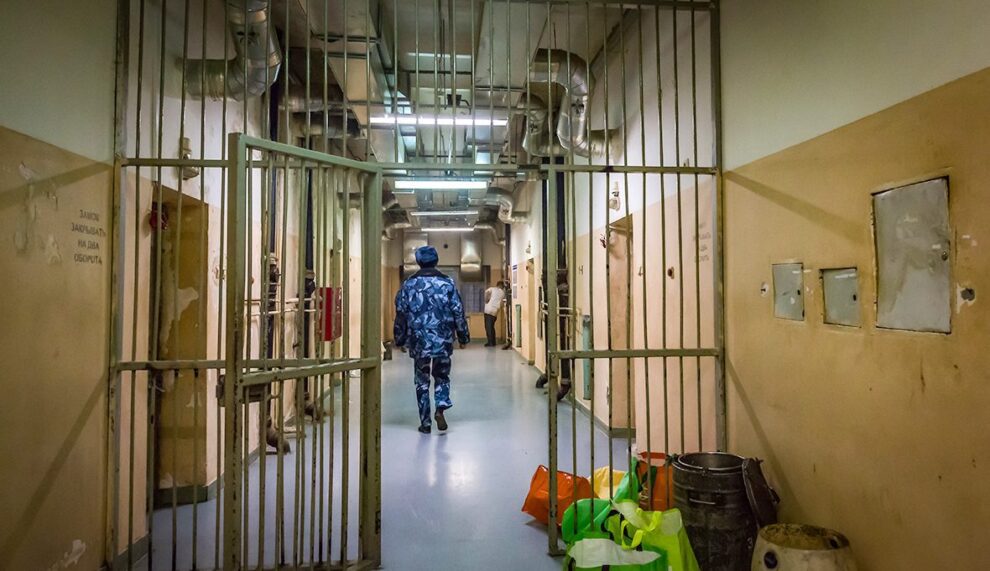You are not Forgotten.
Berlin, Brussels (24/04 – 28.57)
Tajikistan authoritarian regime under President Emomali Rahmon is holding many Pamiris in their prisons in Dushanbe, for “political” crimes as cited by the regime, including the slightest opposition to Rahmon who has ruled Tajikistan since 1994. This Eid-ul Fitr sees many such prisoners lamenting their fate in the dreaded cells while the rest of the world celebrates the joyous moment with families and loved ones.
The Ministry of Internal Affairs for the Gorno-Badakhshan Autonomous Region (GBAO) opened a criminal case against Sino Vazirbekov, the brother of civil activist Ramzi Vazirbekov, who was sentenced to 13 years. The young man was accused of extremism after participating in an opposition rally in Berlin, Radio Ozodi reports.

Tajikistan President Emomali Rahmon is holding many Pamiris in the prisons in Dushanbe, for “political” crimes as cited by the regime, including the slightest opposition to Rahmon who has ruled Tajikistan since 1994.
A law enforcement source in GBAO told Radio Ozodi on April 14 that Sino Vazirbekov’s case was being investigated by the local prosecutor’s office.
“The reason for initiating a criminal case against Sino Vazirbekov was participation in the event of the banned National Alliance of Tajikistan, which was reported on social networks,” said the source, who preferred not to be named.
Sino Vazirbekov, in an interview with Radio Ozodi on April 17, confirmed that he was one of the participants in the opposition protest in Berlin , however, according to him, he is not a supporter of any political group.
On March 25, a group of Tajik opposition movement members in Berlin went on a protest against Rahmon’s alleged visit to European countries. The action took place in front of the German Bundestag. Participating in the peaceful and non-violent demonstration, there were about 30 members whom were in exile from different Tajikistan – GBAO groups.
A day earlier, the supporters of Tajik opposition had gathered in front of the Tajik Embassy in Berlin and the building of the German Foreign Ministry and demanded the release of Abdullo Shamsiddin, the son of Shamsiddin Saidov, one of the activists of the Islamic Renaissance Party banned in Tajikistan.
Responding to the Tajik government’s repressive policies, the representative of the Norwegian Helsinki Committee, Marius Fossum, proposed using international mechanisms of influence, including “targeted sanctions”, against the Tajik authorities, “which violate the principles of justice and the rule of law,” Radio Ozodi reports. Fossum tweeted on April 7 that Tajik officials were “mocking justice and the rule of law.”
He made a statement after the media published details of the case of the detained Tajik freelance journalist Khurshed Fozilov, whom the authorities accuse of collaborating with organizations banned in the country. If the charges are proven in court, Fozilov faces imprisonment for a term of 5 to 8 years.
“Tajik authorities are persecuting independent journalist Khurshed Fozilov for his legitimate journalistic activities, and in this way they are “cleansing” the remnants of freedom of speech in the country,” said Fossum.
Fozilov was detained on March 6 by officers from the State Committee for National Security in the western city of Panjakent, according to news reports. Authorities charged Fozilov with participating in banned extremist groups, but have not disclosed any specific allegations against him, a person familiar with his case told the Committee to Protect Journalists on the condition of anonymity, citing fear of reprisal.
The hunt for dissenters is not only carried domestically but also against those residing abroad through kidnapping. Tajik authorities, assisted by the Russian special services, abducted dozens of people from Russian territory in 2022. Tajikistan’s General Prosecutor’s Office revealed that 96 people were extradited into the country during the period.
Most of the abductees were native residents of GBAO who took part in protests against the authoritarian Tajik government’s policies in Gorno-Badakhshan. They are convicted under Article 370 of Tajik Criminal Code on extremism using the internet.
Political activists also face deportations from other countries for expressing discontent toward the authoritarian regime. Shamsiddin, for example was deported to Tajikistan by Germany in January before undergoing forced disappearance only to be sentenced to seven years in prison on charges of sedition.
Shamsiddin’s supporters have said his apparent crime was to “like” a post on social media. It is unclear what the content of the post was.
Shamsiddin, 32, is the son of Shamsiddin Saidov, a leading figure within the Islamic Renaissance Party in Tajikistan, which was the only significant opposition force within the country until it was outlawed in 2015.
Shamsiddin has lived in Germany since 2009, but ran into trouble, according to a report by RFE/RL’s Tajik service, when he failed to register with the German migration service. Shamsiddin was also reportedly denied asylum on three occasions.





